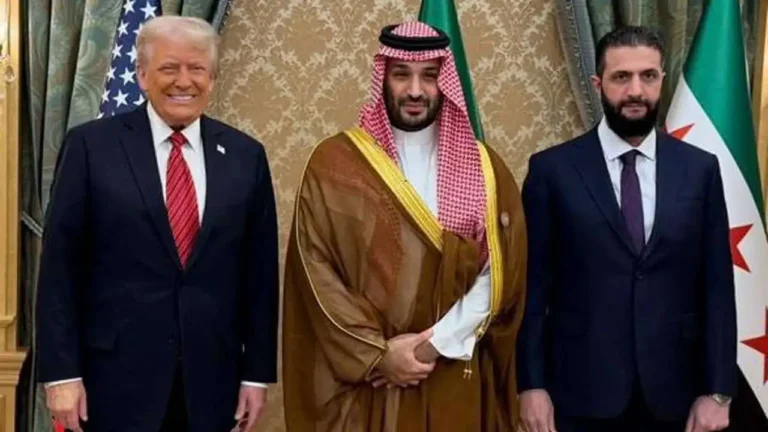Received by Riyadh Reviews
In a landmark political shift, U.S. President Donald Trump announced the lifting of U.S. sanctions on Syria, signaling a potential turning point in the country’s long-isolated economic landscape.
The announcement came during his high-profile visit to Riyadh for the GCC-U.S. Summit, following discussions with Saudi Crown Prince Mohammed bin Salman.
“We’re lifting the sanctions on Syria to give them a chance. The sanctions were holding them back. Now is the time for Syria to rebuild and prosper,” Trump stated during the press briefing.
A Move Decades in the Making
The U.S. imposed sanctions on Syria as far back as 1979, with additional restrictions added during the civil war. Trump’s decision marks the first major U.S. step toward normalization with Damascus in decades.
While he did not provide a timeline or details on whether the sanctions would be lifted fully or in phases, the move is expected to reshape Syria’s economic outlook, particularly in terms of foreign investment, infrastructure development, and re-engagement with global financial systems.
Implications for the Syrian Economy
The lifting of sanctions could open doors for Syria’s return to international institutions such as the IMF and World Bank, pending approval. The Syrian economy, devastated by over a decade of war and international isolation, has seen GDP losses exceeding $800 billion according to recent UN reports.
Over 90% of Syrians live below the poverty line, with more than three-quarters dependent on humanitarian aid. Trump’s move has sparked hope among Syrian citizens and officials for recovery and rebuilding.
According to Syria’s acting Finance Minister, the decision may attract foreign capital and allow Syria to rebuild “the legislative and financial environment needed to welcome global investors.”
Legal and Political Hurdles
However, experts caution that not all sanctions may be lifted easily. Laws such as the Caesar Act, which specifically targets Assad’s regime for human rights abuses, were passed through Congress and may require legislative repeal or reinterpretation. Trump is likely to rely on executive orders and sector-based exemptions as initial steps.
International analysts point out that this shift could allow countries like Saudi Arabia and the UAE to engage in reconstruction partnerships with Damascus — a move previously blocked by sanctions.
For a deeper legal analysis on U.S. sanctions, see this report by BBC
Regional Reactions and the Path Forward
The reaction across Syria was immediate. In cities like Aleppo and Damascus, spontaneous gatherings erupted in celebration. Social media showed crowds cheering, waving Syrian flags, and lighting fireworks — a sign of hope after years of economic hardship.
Yet, economic experts warn that lifting sanctions alone won’t be enough. Syria still faces massive foreign debt, estimated between $20–23 billion, and urgent infrastructure needs.
Still, Trump’s announcement marks a pivotal moment in U.S.-Syria relations and may signal the beginning of broader diplomatic shifts in the Middle East, especially as Gulf states resume regional partnerships and the geopolitical balance continues to evolve.






